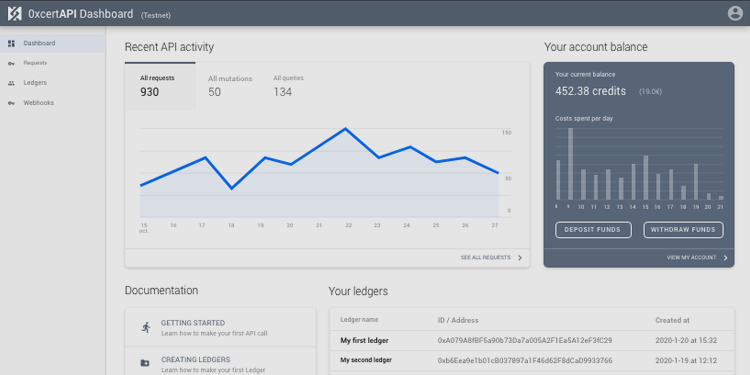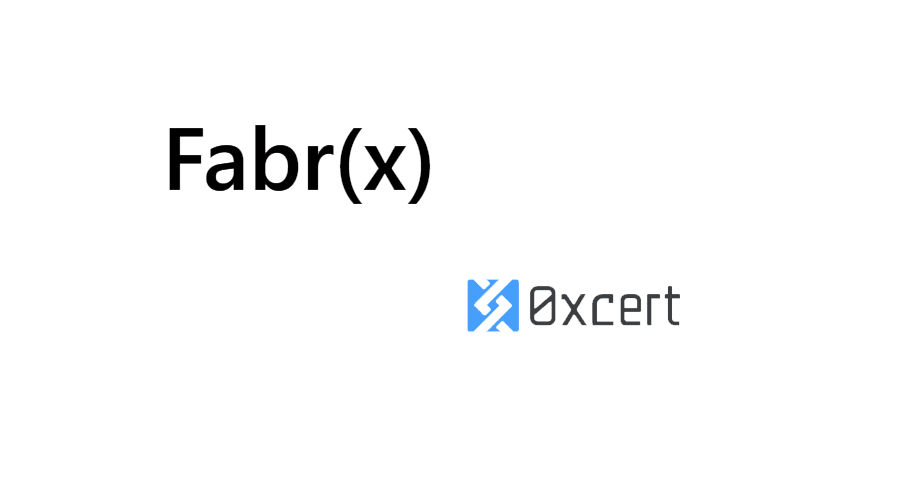0xcert, a blockchain platform for non-fungible tokens (NFTs) and certification, has announced the launch of the 0xcertAPI. The fully decentralized API is a web service built on top of the existing 0xcert open-source infrastructure, which wraps 0xcert functionalities in a common API interface. The API aims to transform the way businesses and developers interact with the blockchain. Users will now be able to efficiently issue and manage unique assets on the blockchain better than ever before.
Just recently, the 0xcert Framework v2.0 was released, which improves upon the first framework version for blockchain-based issuance and management of non-fungible tokens. However, it still requires a certain level of coding knowledge and presumes that a developer handles transaction states and retries by themselves, regulates the gas consumption, etc.
Now regardless of development skill level, building on the blockchain is open to everyone, the advanced 0xcertAPI loads all the Framework functions into a standard API service.
As a hosted solution, the API is still a fully decentralized service. How does it work?
- A developer prepares the orders on their side,
- Signs the orders with their key, much like every other participant in the order,
- And sends them for execution to the 0xcertAPI.
The order contains all transaction details, from the actions to be executed to the price of each transaction. If an order is completed as it should be, the 0xcertAPI executes the transaction. If not, no transaction takes place.
Atomic transactions
Through atomic transactions, the 0xcertAPI executes orders. This was introduced over a year ago and since then, the 0xcert team has improved and perfected the atomic transaction mechanism. One of the major improvements is multi-sig atomic transactions. These enable atomic operations among several participants, but also allow for advanced approval functionalities, higher levels of automatization, and other features. Atomic transactions also enhance the decentralized aspect of the 0xcertAPI. Much like atomic transactions in the 0xcert Framework, the atomic transaction made through the API can be either executed fully or not at all.
Every atomic transaction is signed by the participants of the order. This means that the content of an atomic transaction cannot be altered or influenced by neither 0xcert nor by any unauthorized party. The blockchain-based transactions only support the execution of an order package (atomic operation) signed by the participant. This makes atomic transactions completely hack-proof, and gives the participant the power to remain the owner of all their data and to manage the related orders in their full autonomy.
How to use the 0xcertAPI?
The 0xcertAPI allows users to read the data on the blockchain with free queries, while writing and editing of transactions through mutations only require the use of a credit card or ZXC tokens, and no ETH. Recently, 0xcert also introduced dapp tokens into the 0xcert ecosystem and they work in the exact same way with the 0xcertAPI as they do with Evidenspace (NFT issuance and management platform) which is powered by the 0xcertAPI itself.
Communication with the 0xcertAPI runs through the REST protocol. The 0xcert team also compiled the 0xcert Client, a library that packs up all the relatively complex parts which would otherwise require manual writing when using the 0xcert Framework. The 0xcert Client is designed to be clear and easy to use – it’s written for TypeScript/JavaScript and NodeJS, and can be used both in browsers as well as servers. Other than that, the 0xcertAPI leaves a developer with a very familiar experience, similar to dealing with standard services, such as payment gateway, e-mail gateway, etc.
“After months of development, we’re proud to give you the 0xcertAPI, a service created for all the businesses and organizations that consider integrating blockchain tech and that are used to building their systems quickly through APIs. Our goal is to make blockchain integrations and development as easy and arbitrary as it is today with payment APIs, email APIs, messaging APIs, etc.”
– The 0xcert Team






















